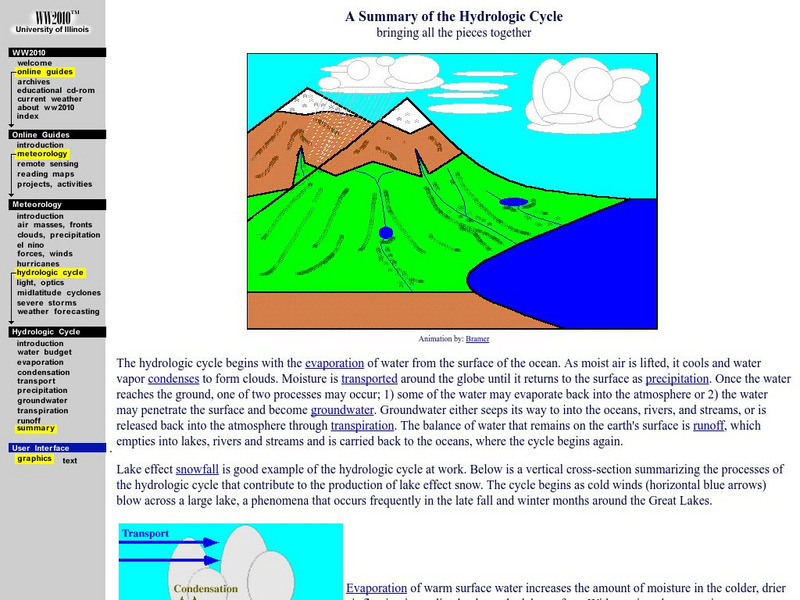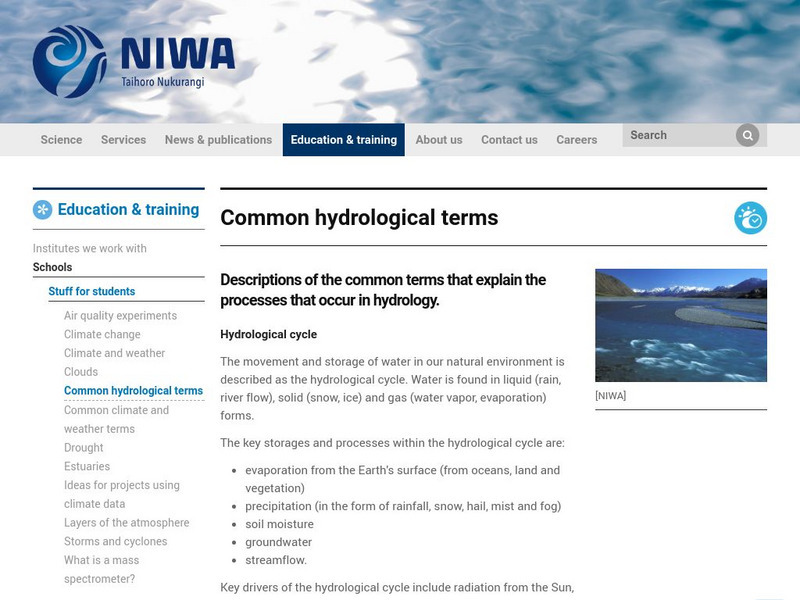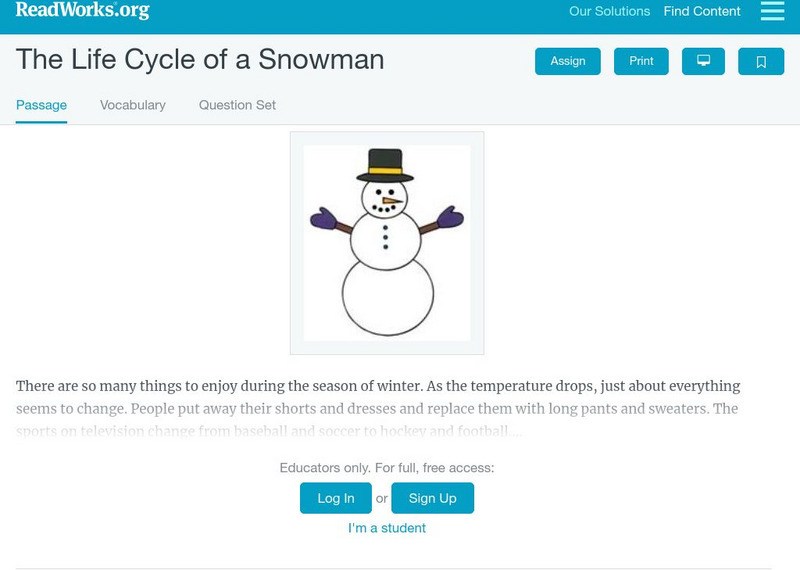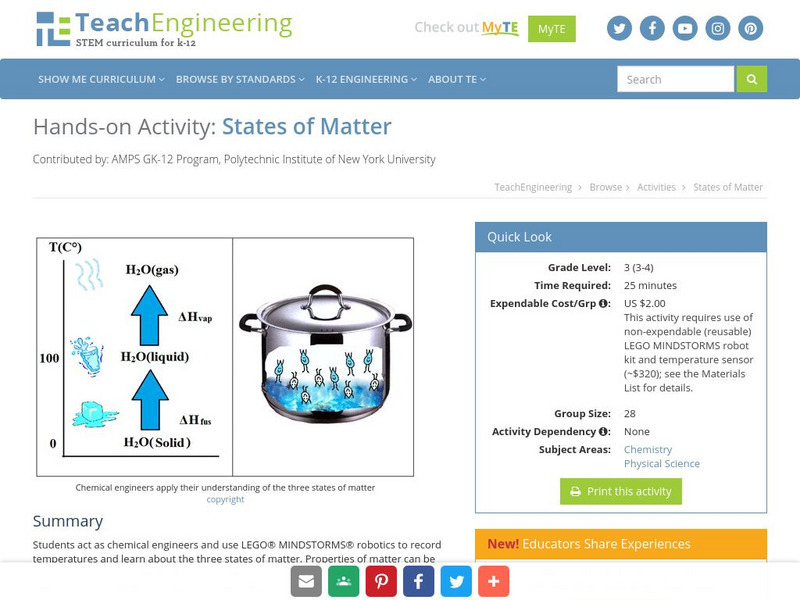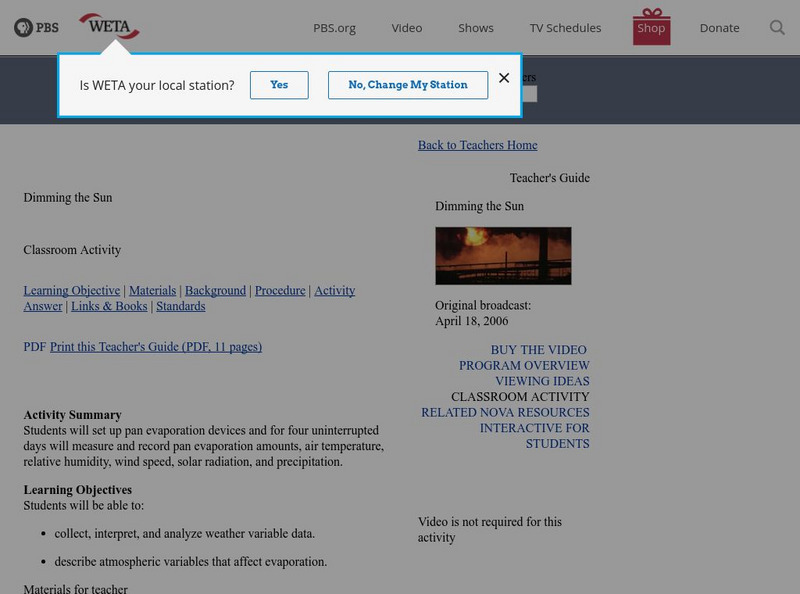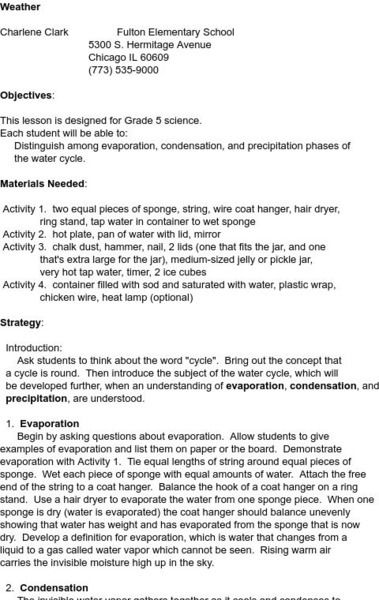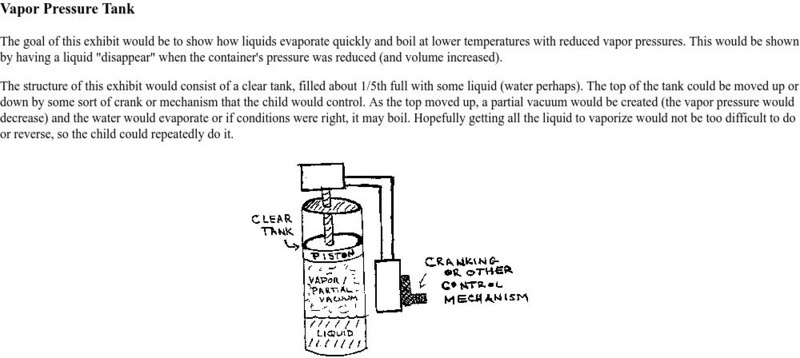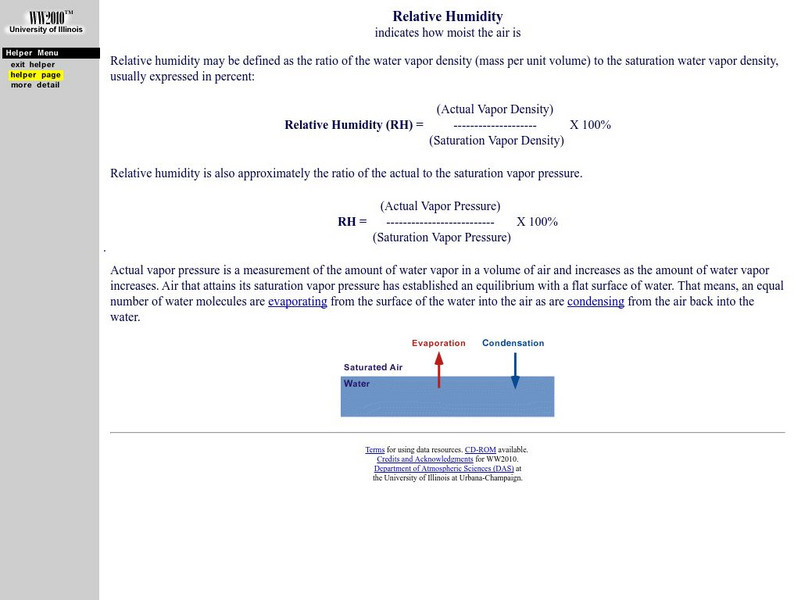Hi, what do you want to do?
Concord Consortium
Concord Consortium: Stem Resources: Relative Humidity Measurement
Using the wet bulb-dry bulb method, students will compare the temperature of a dry temperature sensor and a wet temperature sensor. By comparing the temperatures, students will be able to find the relative humidity. After completing the...
University of Illinois
University of Illinois Urbana Champaign: A Summary of the Hydrologic Cycle
Animation and text explain the water--or hydrologic--cycle, which is the process that water undergoes in nature.
Other
Niwa: Common Hydrological Terms
A glossary of terms that describe the processes that occur in hydrology. Glossary explains evaporation, precipitation, soil moisture, groundwater, and stream flow.
Read Works
Read Works: The Life Cycle of a Snowman
[Free Registration/Login Required] An informational text about water as a liquid, a solid, and a gas. A question sheet is available to help students build skills in reading comprehension.
E-learning for Kids
E Learning for Kids: Science: Bermuda Triangle: What Is Condensation?
Cindy is at the beach learning a lot about water. Join her to explore the water cycle.
E-learning for Kids
E Learning for Kids: Science: Rio De Janeiro Carnival: What Is Boiling?
Ready for the carnival? First, help Joao get ready for his test about the water cycle, and then explore other water cycle processes.
ClassFlow
Class Flow: Dissolving and Evaporation
[Free Registration/Login Required] Ever wondered what happens at the molecular/ionic level when salt is dissolved in water or salt-water is evaporated by heating/boiling? Peek into the molecular world with this flipchart to view these...
Concord Consortium
Concord Consortium: What Makes Water Special?
Activity 2 investigates Why is water different from other liquids? This activity will investigate properties of different liquids. Students will explore what makes honey gooey and thicker than water. And why some liquids evaporate faster...
Concord Consortium
What Happens to the Energy of Water Molecules During Hurricanes?
How does energy charge when evaporation is reversed? and What powers a hurricane? are explored in this module.
TeachEngineering
Teach Engineering: States of Matter
Students act as chemical engineers and use LEGO MINDSTORMS NXT robotics to record temperatures and learn about the three states of matter. Properties of matter can be measured in various ways, including volume, mass, density and...
Utah Education Network
Uen: How Do You Dew?
See how the processes of condensation and evaporation occur.
Utah Education Network
Uen: Trb 4:1 Investigation 2 Why Does a Puddle Shrink?
Classroom activity helps students understand evaporation.
TED Talks
Ted: Ted Ed: The Chemistry of Cold Packs
If you stick water in the freezer, it will take a few hours to freeze into ice. How is it, then, that cold packs go from room temperature to near freezing in mere seconds? John Pollard details the chemistry of the cold pack, shedding...
PBS
Pbs Teachers:dimming the Sun
Conduct an experiment and investigate how air temperature, relative humidity, wind speed, solar radiation and precipitation affect evaporation. Graph the data collected during the experiment.
Science and Mathematics Initiative for Learning Enhancement (SMILE)
Smile: Weather
This lesson plan focuses on teaching students to distinguish among the evaporation, condensation,and precipitation phases of the water cycle.
NOAA
Noaa: National Weather Service: Simplified Hydrologic Cycle
The National Weather Service offers information on the processes that make up the water (hydrologic) cycle, including evaporation and transpiration, precipitation, run-off, infiltration, and percolation. Has a good illustration and...
University of Chicago
Ancient Mesopotamia: The First Farmers [Pdf]
In this lesson plan our class can try an experiment to show how constant irrigation, with repeated evaporation of water that left salts in the soil, eventually ruined much farming land in southern Mesopotamia.Young scholars can fill a...
Carnegie Mellon University
Carnegie Mellon: Vapor Pressure Tank
Basic design of a demonstration machine that will lower the vapor pressure and cause water to evaporate at room temperature.
University of Illinois
University of Illinois Urbana Champaign: Relative Humidity
Describes what relative humidity is, shows how it is calculated, and how it is related to evaporation and condensation.
Bill Nye
Bill Nye: Sock It to Me
This tutorial by Bill Nye explains how evaporating water (or sweat!) can cool you down.
CK-12 Foundation
Ck 12: Physical Science: Boiling
A module reviewing over how vaporization occurs and its difference from evaporation. Also, review over the definition of boiling point. Module includes a video, pictures, explanation, and review questions.
Science Fun for Everyone
Science Fun: Olympic Medals
Create your own Olympic medal out of clay with the help of an adult. Watch as your design hardens over time as the water in the clay evaporates.
BBC
Bb Ci Schools: Revisewise Science: Solids, Liquids, Gases
This site contains an interactive activity in which students can learn about the three states of matter. There is also a factsheet that lists numerous properties of liquids, solids, and gases. The factsheet also uses water as an example...
Other popular searches
- Wind Water Evaporation
- Water Evaporation Art
- Properties Water Evaporation
- Water Evaporation Rate
- Water Evaporation in Hands






